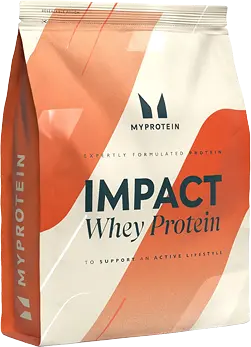Knowledge BaseYou're Questions Answered
BACK
Can whey protein powder cause constipation?
Yes, whey protein powder can sometimes cause constipation. This side effect is not universal but can affect individuals depending on their digestive health, dietary fiber intake, and hydration levels. Whey protein, particularly when consumed in large amounts, can lead to digestive issues including constipation.
The primary reasons whey protein may cause constipation include:
- Low Fiber: Whey protein is a concentrated source of proteins but is very low in fiber. High-protein diets that are low in fiber can reduce bowel movement frequency and lead to constipation (1).
- Dehydration: Adequate hydration is essential for preventing constipation. Protein powders, especially those that are high in protein like whey, require more water for metabolism and can lead to dehydration if fluid intake is not increased, thereby causing constipation (2).
- Dairy Sensitivity: Some people may have sensitivities to dairy products. Since whey is derived from milk, those who are sensitive might experience constipation among other digestive issues like bloating and gas (3).
To minimize the risk of constipation when consuming whey protein powders, consider the following recommendations:
- Increase your dietary fiber intake alongside your protein intake. High-fiber foods include fruits, vegetables, legumes, and whole grains.
- Ensure you are drinking enough fluids. As a general rule, aim to consume at least 8 glasses of water a day, more if you are active or consuming high amounts of protein.
- Consider mixing your whey protein with sources of dietary fiber or using fiber supplements if your current diet lacks sufficient fiber.
- If you suspect dairy sensitivity is causing constipation, try switching to a non-dairy protein powder, such as those made from peas, hemp, or rice protein.
Was this answer helpful? Let us know!
Like
References:
- Slavin, J. (2008). Position of the American Dietetic Association: Health Implications of Dietary Fiber. Journal of the American Dietetic Association, 108(10), 1716-1731.
- Popkin, B. M., D'Anci, K. E., & Rosenberg, I. H. (2010). Water, hydration and health. Nutrition Reviews, 68(8), 439-458.
- Lomer, M. C. E., Parkes, G. C., & Sanderson, J. D. (2008). Review article: lactose intolerance in clinical practice – myths and realities. Alimentary Pharmacology & Therapeutics, 27(2), 93-103.
Add to this Answer
Related Questions

Disclosure
Your Answer
Do you have a suggestion to improve the answer? Please detail your suggestions and provide any references to information that may support your answer if available.
The content on this site has not been written, reviewed or endorsed by a medical professional. We assume no liability for the misuse of supplements and recommend you review the label of any product, as well as consulting with your health care professional.
We are a participant in the Amazon Services LLC Associates Program, an affiliate advertising program designed to provide a means for us to earn fees by linking to Amazon.com and affiliated sites.
We are a participant in the Amazon Services LLC Associates Program, an affiliate advertising program designed to provide a means for us to earn fees by linking to Amazon.com and affiliated sites.
© 2025 ProteinPowder.com






